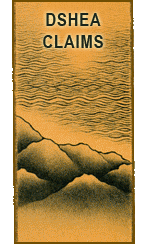DSHEA Tutorial: Red Flag Areas of Interest to the FDA

Violations of the DSHEA can result in fines, seizures of product, and incarceration. [source]
Of particular interest to the FDA are products that address the following conditions:
- Treatments for life-threatening diseases such as cancer, HIV/AIDS, and lupus.
- Weight loss products: these are very easy to sell to those who are obsessed with their weight.
- Autism: parents of autistic children can be desperate and provide easy targets for unproven therapies. The FDA’s article on this topic mentions marketers of dietary supplements for autistic children who contend that their products promote more complete food digestion, thereby preventing neuro-toxic molecules that contribute to autism. The FDA calls this a false and unsupported claim.
- Treatments for behavioral disorders: Like parents of autistic children, parents of children with behavioral disorders (e.g., Hyperactivity and Attention Deficit Disorder) are vulnerable targets for sham products. These parents want their children to behave normally and want to avoid “drugging” them.
- Treatments for mental retardation and Down syndrome: Many of these supplements identify low intelligence in children as a disease. By promising to “increase the intelligence quotient,” these products claim to treat conditions such as mental retardation and microcephalus. Marketers of TCM Jing tonics would well advised to carefully monitor their claims. While Jing deficiency is commonly considered one cause for congenital deformities such as Down syndrome, herbal formulas for Jing deficiency are not, to my knowledge actually effective to raise the IQ or mitigate other Down syndrome symptoms. Better to set aside your Jing tonics for those who develop problems later on in life where it can perhaps do some good.
- Colloidal minerals: These products are specified for diseases including fibromyalgia, breast cancer, Alzheimer’s, and ovarian cancer.
- Supplements for smokers: Some of these products claim a special formulation that protects the user from the harmful effects of smoking.
- Supplements for drinkers: Some of these products claim to prevent hangovers. Others promise to prevent drunkenness and to lower the symptoms of alcohol consumption (e.g., high blood-alcohol levels, poor coordination, and memory impairment). [Author’s note: While some research in the use of Ge Gen (Rx. Pueria, “kudzu”) has proven to lower the amount of alcohol needed for the same sensation of intoxication, the research has not yet apparently reached the quality and quantity of studies necessary for the FDA to make this admission.]
- Colloidal silver products: These products are promoted as alternatives to antibiotics intended for serious infectious diseases. They also are promoted to protect against anthrax. The FDA site states that colloidal silver is completely ineffective. It is marketed for use by children and can cause severe adverse consequences, including argyria (blue-gray discoloration of the skin caused by the ingestion of silver). This condition is irreversible.
For examples of FDA warning letters that have been sent out, and plenty of consumer information on how to safely buy dietary supplements and drugs online, the FDA maintains this site entitled: Buying Medicines and Medical Products Online
And here’s an assessment ofВ FDA actions sent out during 2009 which helps one recognize their key concerns.
In 2012, an herbal supplement marketer’s website and catalog was reviewed by the FDA for their DSHEA compliance. See how Dragon Herbs did here.
Next: Conclusion and Future Actions.
 Last modified: August 1, 2009
Last modified: August 1, 2009  Tags: Claims, DSHEA В· Posted in: Claims
Tags: Claims, DSHEA В· Posted in: Claims
